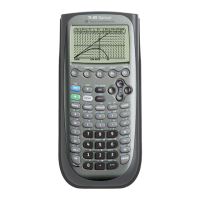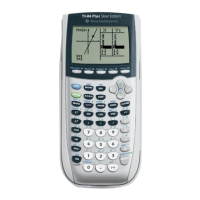1218
Appendix B: Global Variables — Apps
TI
-
89 / TI
-
92 Plus Developer Guide
Not for Distribution
Beta Version January 26, 2001
OO_SuperFrame
(continued)
/* The C compiler complains about 0 length array for empty FRAMEs
FRAME(C, &B, 0, 0, 0)
ENDFRAME
*/
const OO_Hdr C = /* hand-coded empty FRAME C */
{
(pFrame)&B, 0, OO_RO | OO_SEQ, 0, 0
};
void A_foo(pFrame self)
{
/* implementation of A::foo */
}
void B_foo(pFrame self)
{
/* implementation of B::foo */
Access_AMS_Global_Variables;
pFrame super = OO_SuperFrame;
/* Call inherited foo method */
foo(super);
}
void main(void)
{
foo((pFrame)&C);
}
Main calls method foo of frame C. Frame C has no implementation of foo, so inherited method
foo from frame B (routine B_foo) actually gets called.
B_foo wants to call the inherited foo method of frame self. If it calls the parent foo method of
frame self, it will, in fact, be calling itself recursively — remember self points to frame C, the
parent of which is frame B.
OO_SuperFrame
conveniently contains a pointer to the parent frame of the frame where the
latest method address was retrieved. Method foo was retrieved from frame B, so
OO_SuperFrame
contains a pointer to frame A. Now a call to foo(super) in B_foo calls the foo
method of frame A (routine A_foo).
Note: OO_SuperFrame
is a system-wide global variable. If you intend to use it in one of your method
implementations, make an immediate copy into a local variable because subsequent method calls or
attribute accesses will change its value.

